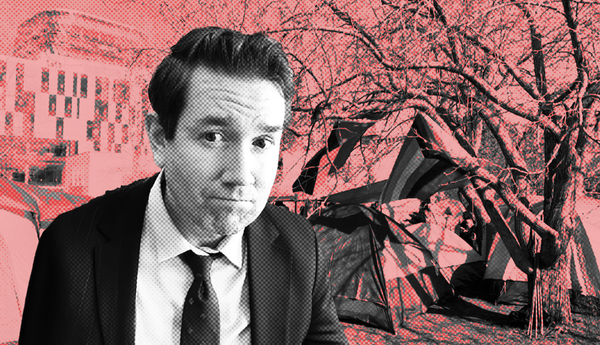Abortion has come roaring back into the public debate after a leaked document suggested that the United States Supreme Court is prepared to overturn Roe v. Wade, a landmark court case which guaranteed nationwide abortion rights in that country.
Ontario’s election officially kicked off at the same time as the leak, posing questions about what the election could mean for abortion access in that province.
Canada currently has no laws that regulate abortion, meaning abortion is treated like any other medical procedure guaranteed under the Canada Health Act (CHA).
Through the CHA, Canada’s national, public healthcare system is supposed to offer Canadians equal access to public healthcare, in order to, as the preamble to the act states, "protect, promote and restore the physical and mental well-being of residents of Canada and to facilitate reasonable access to health services without financial or other barriers."
The CHA is necessary because healthcare is defined as provincial jurisdiction by Canada’s constitution. Without the federal-level framework, provinces could effectively have different healthcare systems, making equity and access look completely different from region to region.
However, even though the principles of the CHA state that Canadians must have equitable access to health services, provincial government decisions can hollow out just how equitable that access is.
In the case of access to abortion, it can vary wildly across the country, and is deeply influenced by the austerity politics of the government of the day.
Ontario Premier Doug Ford has been asked several times during his mandate about his party’s stance on abortion.
In 2019, when militant anti-abortion activist and Progressive Conservative MPP Sam Oosterhoff spoke at an anti-abortion rally in front of Queen’s Park, journalists pressed Ford on his position on the subject.
Ford insisted that he was not interested in having a debate on abortion. While he took no action to rein in Oosterhoff, who continued speaking at anti-abortion events to the chagrin of many, including the Ontario NDP, his government didn’t specifically attack abortion either.
In January, PressProgress reported that the far-right, anti-abortion group Campaign Life Coalition (CLC) had called Ford “totally corrupt” for not doing more to limit access to abortion. CLC had initially been optimistic about Ford's leadership.
This week, Ford said "we're not changing anything in Ontario" when asked by reporters about abortion access.
But unlike in the U.S., where attacks on abortion tend to be legislative, in Canada, the main threats to abortion, at least for the time being, are far more likely to come from healthcare spending reductions.
Abortion doula and doctoral student in the history of social movements Robyn Schwarz points to cuts in hospital spending as the biggest impact that Ford’s administration has had on abortion services.
As a result of these spending cuts, Schwarz told The Maple, “in some hospitals, decisions were made to cut a specific number of abortions in a day, or cut the number of times an obstetrician was in the community.” Both decisions reduced access to abortions.
Cuts weren’t limited only to abortions, Schwarz added. Other reproductive justice measures were axed too, like at her local hospital in Kitchener, where a lactation consultant position was terminated to deal with a budget shortfall.
The Financial Accountability Office of Ontario’s 2020-2021 interprovincial comparison on spending found that the Ford government was spending the lowest amount per capita on healthcare of any province. At $4,800 in 2020, Ontario’s spending was 10 per cent lower than the average of the other provinces.
However, it is impossible to blame this trend entirely on Ford. The FAO also found that Ontario has been either the lowest or almost the lowest in terms of per-capita health spending each year since 2008. For the majority of those 12 years, the Liberals were in charge.
While the Progressive Conservatives are yet to release a platform, it is unlikely that their governing style will radically change if they are re-elected. The Liberals haven’t released their full platform yet either.
The NDP has an expansive set of healthcare promises that include raising wages of personal support workers, hiring 30,000 more nurses and expanding community health centres.
The NDP also promises to reduce the surgery backlog caused by COVID-19, “including hip and knee replacements, cataract surgeries, colonoscopies, and mammograms.”
They plan to do this by expanding operating room hours, engaging in a health worker “hiring blitz” and creating a centralized referral system.
Reducing overall strain on the health system is an important part of ensuring access to a range of reproductive health services, although the NDP platform doesn’t specifically mention abortion. On May 3, the party released a statement that said, in part, “Abortion is health care. We all have the right to decide.”
Also on May 3, the Ontario Greens explicitly promised to fund increased access to abortion services. The plan will be released with the rest of their costed platform, and will “expand the number of women’s health clinics and abortion clinics in Ontario.”
At the federal level, the abortion pill Mifegymiso was approved by Health Canada in 2015 and restrictions tied to it were eased in 2017. Schwarz thinks the Liberal government at the time botched the rollout of the pill in such a way that many doctors had no idea they could prescribe it.
According to the Abortion Rights Coalition of Canada, there are only 23 locations in Ontario where abortion services are provided. That isn’t even one per public health unit. But with the availability of Mifegymiso, doctors can now prescribe abortions for pregnancies of up to 10 weeks.
Editor's note, May 6, 2022: A previous version of this story incorrectly spelled the name of Robyn Schwarz. She is Robyn Schwarz, not Robyn "Schwartz." The Maple regrets the error.
Nora Loreto is The Maple's Ontario election reporter. She is the author of Spin Doctors: How Media and Politicians Misdiagnosed the COVID-19 Pandemic.







